The Euclid Consortium STAR Prize 2025
The Euclid Special Talent And Recognition (STAR) Prize is a prize to acknowledge work done within the Euclid Consortium in different areas of activity. It was established in 2017, and every year prizes are awarded to nominees in different categories by the Euclid STAR Prize Committee. Nominations are accepted and encouraged from any Euclid Consortium member, excluding self-nominations.
The awardees are (full bios below / on click):
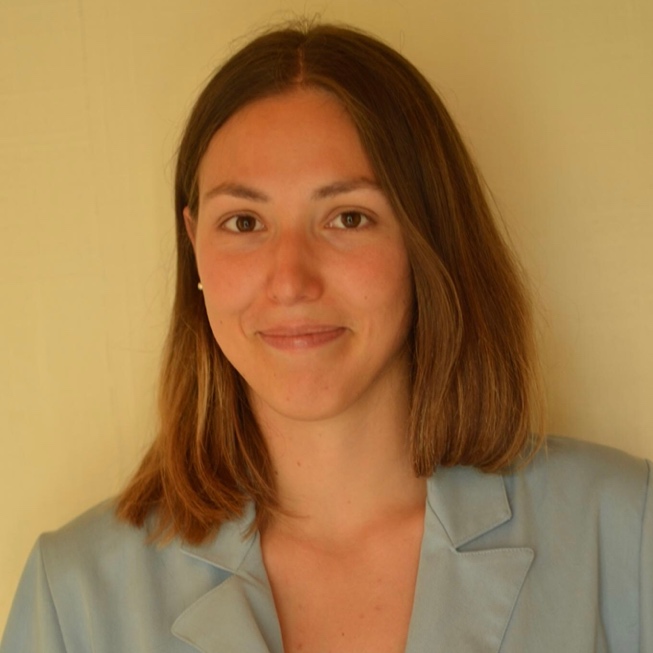
Euclid STAR Prize 2025 – Student Award
Motivation
For work which studies the relationship between galaxies and their environment using Euclid data.
Bio
Maëlie is a second-year Ph.D. student at the astrophysics department of CEA Paris-Saclay. She explores how large-scales structures influence the galaxy morphology in the local Universe. Involved in the Euclid Early Release Observations (ERO), she contributed to generating the first scientific results by analyzing the image of the Perseus cluster, one of the first images captured by Euclid, thereby demonstrating the exceptional capabilities of this instrument. Her work integrates ground-based CFHT data with Euclid observations, optimized for low surface brightness in order to detect galaxy interactions and conduct detailed morphological analyses, thus unveiling segregations and alignments within the cosmic web.
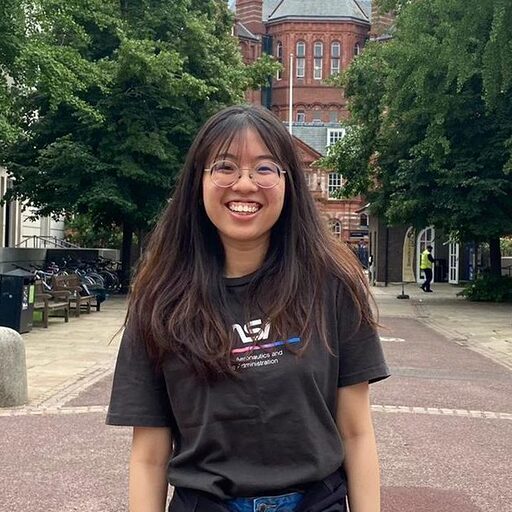
Euclid STAR Prize 2025 – Student Award
Motivation
For contributions to Euclid IST:Likelihood and the Theory Science Working Group.
Bio
Lisa is currently a postdoctoral researcher at the Royal Observatory of Edinburgh, after having completed her PhD at CEA Paris-Saclay, France, in October 2024. She is interested in investigating modified gravity and dark energy models, especially using Large Scale Structure data such as weak lensing and galaxy clustering to constrain them. She has been part of the Euclid Consortium since the beginning of her PhD where, as a member of the IST:L, she contributed as a developer of the Euclid likelihood code CLOE. She is also part of the Theory SWG Work Package 17, where she works to adapt the CLOE pipeline to include the capability of constraining LCDM model extensions.

Euclid STAR Prize 2025 – Student Award
Motivation
For contributions to the characterization of the Euclid NISP Detectors.
Bio
Jean is currently a postdoctoral researcher at the astrophysics department from CEA Paris-Saclay, France, working on the development of infrared avalanche photodiode arrays for photon-counting astronomy. He earned his Ph.D. from Aix Marseille Université and CNRS in September 2024, where his research was centered on the characterization of CMOS image sensors (CIS) for the Euclid mission, focusing specifically on conversion gain, interpixel capacitance (IPC) and detector non-linearity. Jean’s doctoral research, conducted at the Centre de Physique des Particules de Marseille (CPPM) in collaboration with CNES, developed advanced methodologies to accurately model pixel responses of detectors. His work significantly reduced biases in conversion gain measurements for the Euclid mission’s H2RG detectors. Specifically, he adapted methods such as Single Pixel Reset for precise IPC characterization and introduced new non-linear mean-variance models to correct systematic effects in detector responses. Jean has been actively involved in the Euclid consortium since 2021, contributing notably to the calibration pipeline through unbiased conversion gain mapping and leading analyses on interpixel capacitance and nonlinearity corrections. His research interests lie in detector characterization, focusing on modeling and correcting systematic errors to enhance the precision of astronomical and cosmological observations.

Euclid STAR Prize 2025 – Junior Scientist Award
Motivation
For contributions to the Galaxy & AGN SWG and the Strong Lensing SWG.
Bio
Mike Walmsley is a Dunlap Postdoctoral Fellow at the University of Toronto, Canada. He is the Technical Lead at Galaxy Zoo, where he led the three most recent morphology catalogues (DECaLS, DESI, and now Euclid). He is the creator of the Zoobot foundation models – astronomy AI models pretrained on 100M+ volunteer responses and designed to be easily adapted to new tasks and new surveys. He has been building deep learning models to understand galaxy images since 2015, with occasional adventures in fintech and in the UK government. He is still working on his Masters’ project.

Euclid STAR Prize 2025 – Senior Scientist Award
Motivation
For contributions to OU-PHZ, facilitating its integration across pipelines, and enabling Q1 legacy science.
Bio
Will currently holds the post of Adjoint Scientifique at the Observatoire de Genève, University of Geneva. He earned his PhD from the University of Nottingham in 2010, on the evolution of galaxies in the distant universe using the near-infrared UKIDSS Ultra-Deep Survey. Will broadened his research interests into weak gravitational lensing cosmology surveys when he joined the Dark Energy Survey (DES), after moving to ETH Zurich in 2013, working primarily on photometric redshifts and survey data. In DES he held leadership positions in the galaxy evolution and science release working groups, and still leads the DES deep fields team. He joined Dark Energy Science Collaboration of the Vera Rubin Observatory during his third post-doc position, at UCL, leading the photometric redshifts working group, before switching to Euclid in 2019 when he moved to the Observatoire de Genève. He now works on the many aspects of OU-PHZ activities in Euclid, and the links with upstream and downstream aspects of the pipeline and science exploitation. In addition, he co-leads the work package and key science project on the statistical distribution of galaxies.
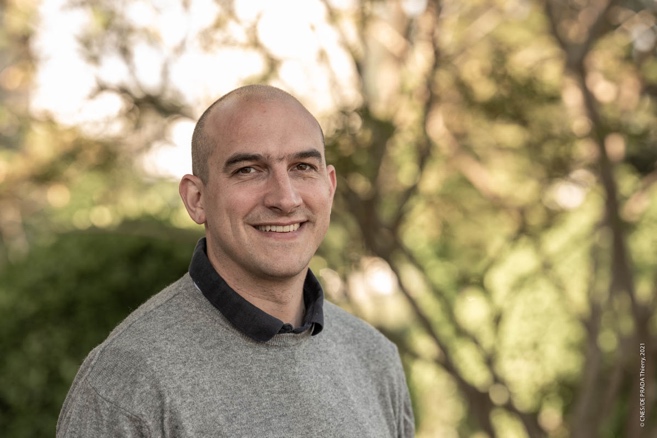
Euclid STAR Prize 2025 – Leadership & Coordination Award
Motivation
For his leadership and contributions to the Euclid Science Ground Segment.
Bio
Pierre is a project manager at CNES (Centre National d’Etudes Spatiales), the French Space Agency. He started at CNES in 2010 in the IT department and was then in charge of the development of a ground segment in Satellite Navigation Systems. In 2019, he joined the Euclid project as SDC-FR lead and is now the Euclid French contributions project manager since the launch. In the consortium, he is the deputy SGS manager and the lead of the SGS System team.

Euclid STAR Prize 2025 – Leadership & Coordination Award
Motivation
For his steering of the weak-lensing pipeline group, and coordination of the DR1 weak lensing Key Projects.
Bio
Sam is a staff researcher in the CosmoStat team of the astrophysics department (AIM) at CEA Paris-Saclay. His work focuses on cosmology, machine learning, signal processing, and scientific software development. He has been a member of the Euclid Consortium since 2012, contributing to various aspects of the Science Ground Segment.
Sam is currently co-lead of the weak-lensing team in OU-LE3 and co-lead of COMB-CL, which is responsible for measuring galaxy cluster masses using weak-lensing data. He also co-leads a key project validating OU-LE3 products for weak-lensing science and is one of the coordinators of the 3x2pt pipeline group, overseeing the end-to-end process of carrying out 3x2pt science.
He is a strong advocate for open science and actively supports early-career scientists.
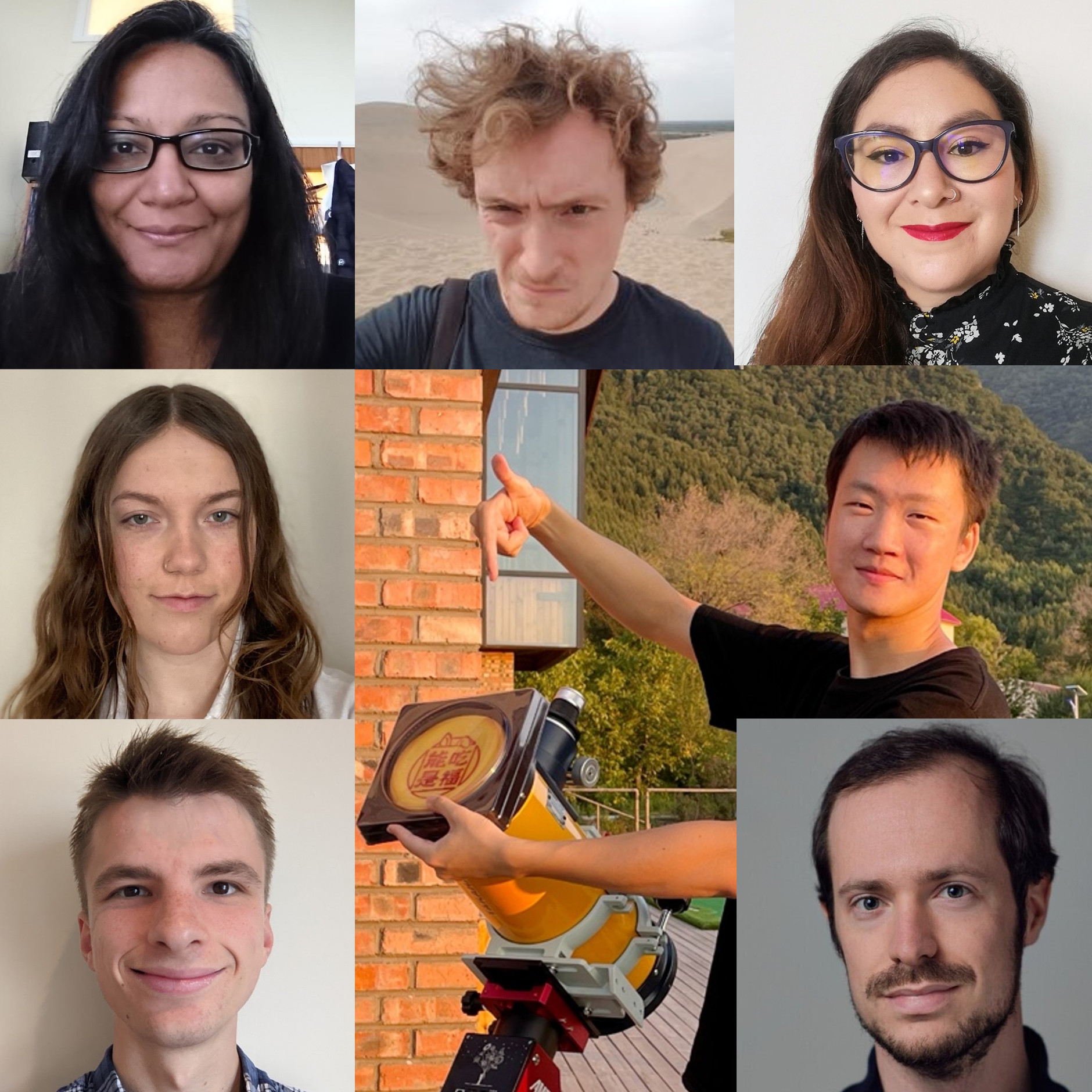
Euclid STAR Prize 2025 – Team Science Award
Motivation
For their outstanding efforts in leading the discovery of strong lenses in Q1 data.

Bio
Mike Walmsley is a Dunlap Postdoctoral Fellow at the University of Toronto, Canada. He is the Technical Lead at Galaxy Zoo, where he led the three most recent morphology catalogues (DECaLS, DESI, and now Euclid). He is the creator of the Zoobot foundation models – astronomy AI models pretrained on 100M+ volunteer responses and designed to be easily adapted to new tasks and new surveys. He has been building deep learning models to understand galaxy images since 2015, with occasional adventures in fintech and in the UK government. He is still working on his Masters’ project.

Bio
Karina Rojas is a postdoc at FHNW, Switzerland, and a former research fellow at the University of Portsmouth, UK. Her general research interest is the study of dark matter and dark energy using gravitational lens systems. Over her career, she explored various applications of this phenomenon, including microlensing and analyzing the mass distribution of systems at group/cluster scales. In the last 6 years she devoted her full time research to understanding how to improve the lens finding searches, from exploring machine learning approaches to understanding the human biases introduced in the final candidates decisions.
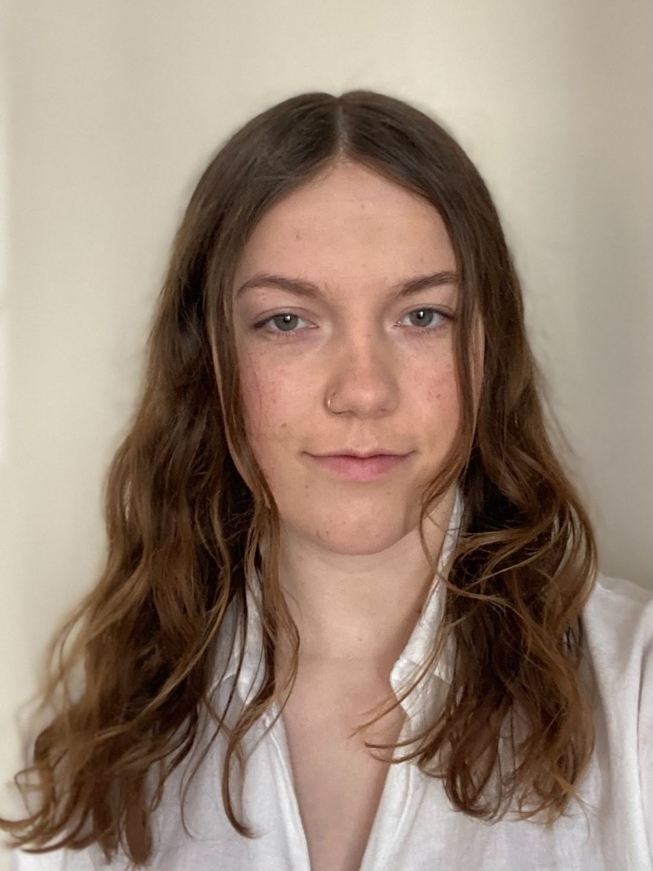
Bio
Natalie Lines has recently started her PhD at the University of Portsmouth, United Kingdom. Her current research focuses on developing machine learning models to detect strong gravitational lenses in large surveys such as Euclid. She graduated with a Master’s degree from the University of Manchester, where her Master’s project involved integrating symmetry properties from group theory into neural networks. Additionally, she has experience working with JWST imaging, using SED fitting techniques to infer the properties of high-redshift galaxies.
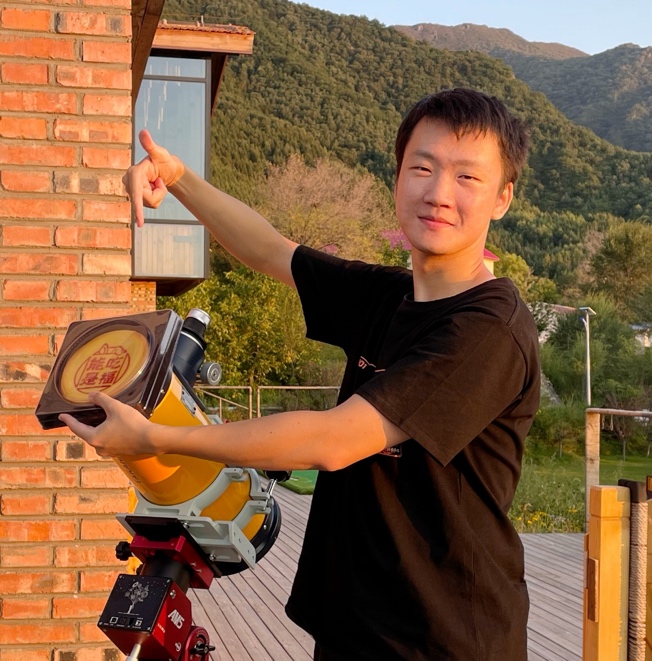
Bio
Li Tian is a third-year PhD student at the University of Portsmouth, United Kingdom. He is interested in all kinds of science related to strong lensing, but his primary focus is on using strong gravitational lensing as a probe of dark matter and dark energy. His work shows that the properties of dark energy can be constrained by all the Einstein rings found in Euclid. He is interested in a special and rare kind of lens system where there are two rings around the deflector galaxy. He also specialises in converting data from boring linear fits files to pretty JPEG images, so enjoys working with the high-quality imaging from Euclid. He also does astrophotography with his personal telescope, he calls it the Very Mediocre Telescope (VMT).
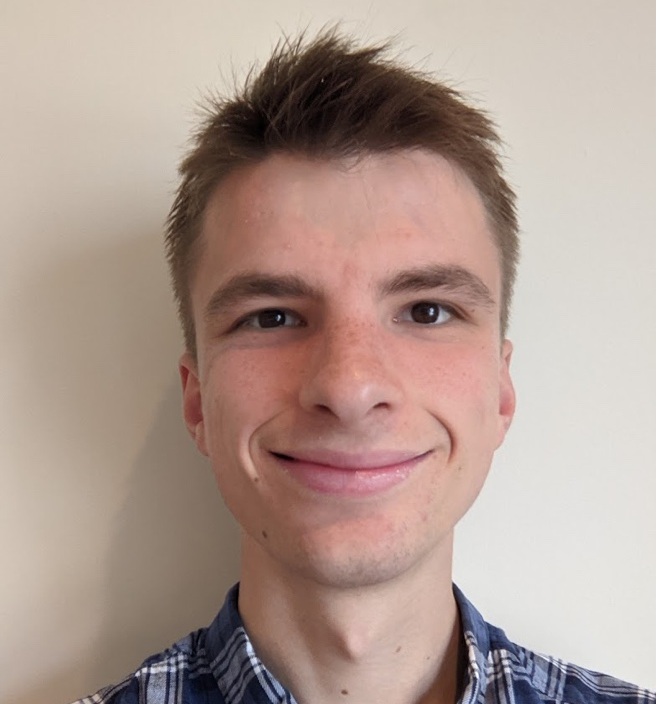
Bio
Phil Holloway is a final year PhD student at the University of Oxford. He is a keen member of the Space Warps team which finds strong lenses with the help of citizen scientists. He’s participated in lens searches using DES and more recently Euclid data, and is looking forward to scaling up the lens finding methods to the full data releases. His PhD has focussed on optimising methods to combine multiple strong lens classifiers into an ensemble and inferring cosmological parameters from large strong lens samples while accounting for the effect of contamination by non-lens systems.

Bio
James Nightingale is an Ernest Rutherford Fellow at Newcastle University, developing PyAutoLens (https://github.com/Jammy2211/PyAutoLens), open-source software for automated gravitational lens analysis. Using PyAutoLens, he modeled the first 500 strong lenses discovered by Euclid during Q1. His research leverages gravitational lensing to probe the most massive black holes, the tiniest dark matter clumps, and the most distant reaches of the Universe. Additionally, he collaborates with healthcare researchers, applying statistical techniques from cosmology to enhance cancer treatments.
His website is: www.jamesnightingale.net

Bio
Aprajita Verma is a Senior Researcher at the University of Oxford with a wide range of science interests spanning galaxy evolution and observational cosmology using multi-wavelength surveys. Along with Phil Marshall (SLAC/KIPAC Stanford, USA) and Anupreeta More (IUCAA, India), she co-leads the dedicated citizen science gravitational lens discovery project ‘Space Warps’ running on the Zooniverse platform that has successfully found lenses in multiple surveys (CFHT-LS, VICS82, DES, HSC) and now excitingly forms part of the Euclid Strong Lensing Discovery Engine.
